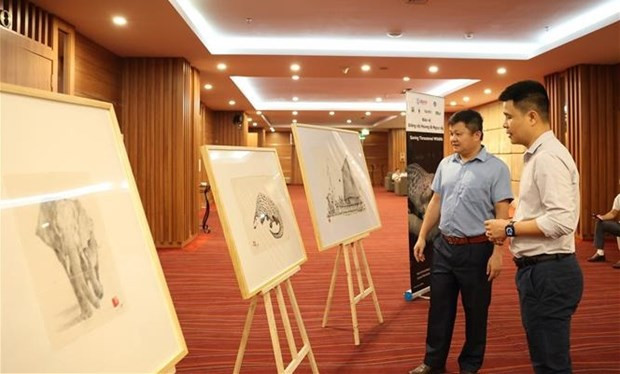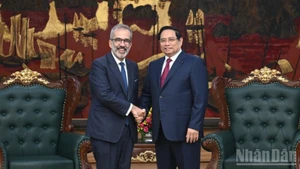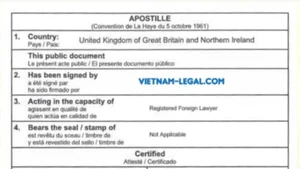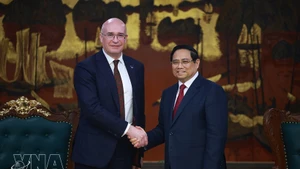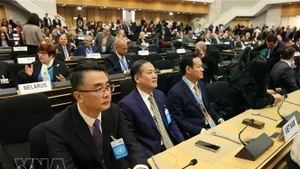Nguyen Quoc Hung, head of the Dak Lak forest protection sub-department, said wild animals form an extremely precious natural resource, contributing to ecological balance and the living environment of humans. However, the illegal wildlife trade still exists with increasingly sophisticated ruses.
Over the last five years, the forest protection sub-department of Dak Lak has coordinated with relevant forces to uncover and deal with 46 wildlife-related violations, seizing 44 wild animals weighing 325.5kg in total, including rare and endangered species.
To prevent and minimise wildlife trafficking, joint efforts by the entire society are needed while it is necessary to effectively carry out awareness programmes, he said, noting that when there is no demand for wildlife consumption, illegal trade will also be eradicated.
Hung said that as enterprises have an important role to play in this work, they should be more active in the fight against illegal wildlife trade to help achieve the common goal of wild animal protection, nature conservation, and sustainable development.
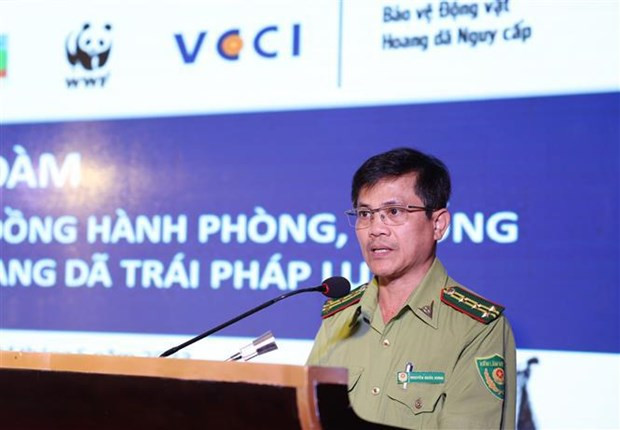 |
| Nguyen Quoc Hung, head of the Dak Lak forest protection sub-department, speaks at the seminar (Photo: VNA) |
Echoing the view, Nguyen Huu Nam, Deputy Director of the Ho Chi Minh City branch of the Vietnam Chamber of Commerce and Industry (VCCI), pointed out that Vietnam is considered a supplier, a point of transit, and a consumption market in the global wildlife trafficking chain. Valuable products from endangered species that are illegally traded include elephant ivory, pangolin scales and meat, rhino horns, and products from big cat species.
Many people are still using wildlife products as food, medication, jewellery, fashion items, and gifts. The rise in demand for and use of these products has become a threat to the existence and sustainable development of wild animals, he added.
Therefore, stepping up communications and protecting wild animals are the responsibility of the entire community. In particular, the business community and entrepreneurs play an important role in curbing illegal hunting, trading, and consumption of wildlife, as well as preventing latent risks of diseases transmitted from animals to humans, Nam opined.
